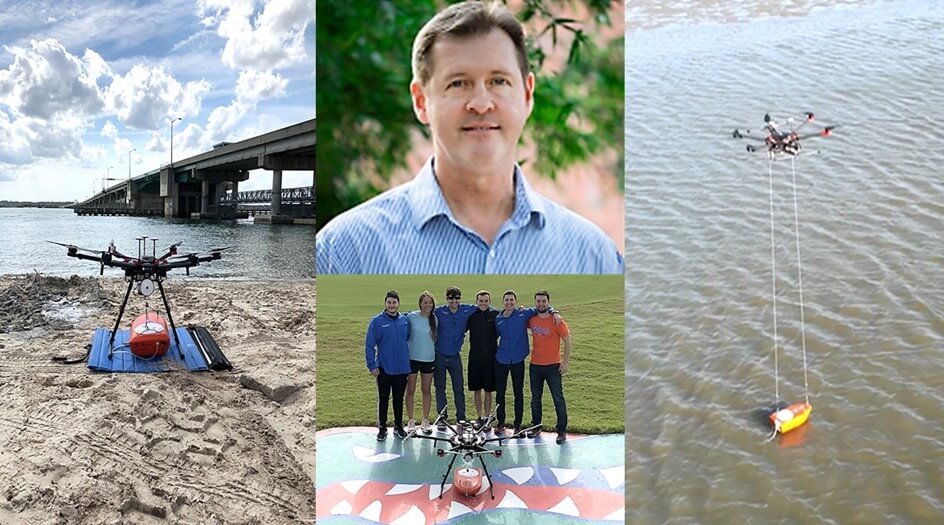Professor Peter Ifju is a faculty member in the UF Mechanical and Aerospace Engineering Department and specializes in unmanned aircraft systems (drones) development for natural resource applications. He also works extensively on micro air vehicles, composite material characterization, and experimental stress analysis. Given a natural resource sensing need, often no commercial off-the-shelf products are available, so the students in his lab design, fabricate, test, and implement drone-based solutions from scratch. In the early days, before any drones were available, they built complete systems to perform photogrammetry, a methodology that is now a ubiquitous tool for wildlife biologists and coastal management professionals.

Most recently, Dr. Ifju was invited by Christine Angelini and David Kaplan to participate in the iCoast Moonshot Project to develop a drone-based method to perform water sampling for harmful algal bloom and red tide outbreaks. The system, called the “Sipper,” has advantages over traditional methods since it can be deployed, without the need for a boat, from land and collect water up to one-mile-line-of-sight from the base station. Quick turn-around allows for sampling numerous locations in short order.
During the process of developing the Sipper, Ifju and his students invented another drone-based method to conduct bathymetric (underwater survey and mapping) studies. This system, called the “Bathydrone,” utilizes a commercial drone that drags a small vessel equipped with a sonar unit on the water surface. His lab is in the process of perfecting that system, but they have already demonstrated the ability to survey up to ten acres per battery charge in about twenty minutes. When deployed from land, the Bathydrone can perform surveys in turbid water, again without the need for a boat. An additional advantage of sonar is the ability to determine bottom hardness. The Bathydrone is ideal for small area surveys such as rivers, river inlets, canals, retention ponds, and preconstruction/inspection of civil infrastructure.
Ifju and his students continue to innovate new technologies alongside CCS field ecologists, modelers and computer scientists, filling key data gaps and enriching the science and engineering product the program produces.
